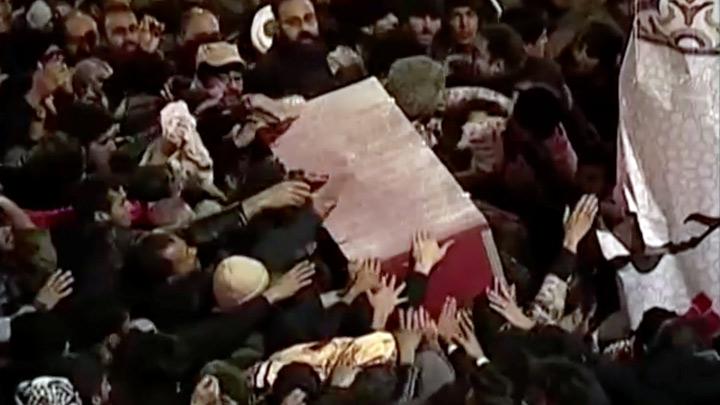
TEMPO.CO, Jakarta - The assassination of Soleimani has to be condemned. Indonesia needs to be prepared to face the impact of the US-Iranian conflict if it escalates.
AS a non-permanent member of the United Nations Security Council, Indonesia should push the other member countries to condemn the USA’s brutality in assassinating Quds Force Commander of the Iranian Revolutionary Guard, Major General Qassem Soleimani. The nation with the heftiest military might in the world should not hold arbitrary right to use its military prowess outside of war to resolve a political matter.
Soleimani died in an American guided-missile attack on Friday, January 3, as he was heading towards the Baghdad International Airport in Iraq. The attack was a direct order from President Donald Trump, under the reasoning the Iranian strongman had “killed or wounded thousands of Americans” and “was in the midst of planning an attack against American diplomats and its military”.
The American government has the right to pursue its country’s enemies. But international norms have to be upheld. Attacking another country’s high-ranking official outside of US territory is a violation of the principles of international relations. The attack which can be categorized as terrorism by the USA has to be condemned soundly. Without firm action by the UN and the international community, a similar occurrence can be repeated. Today Soleimani of Iran, another time another person from who knows which country.
Since the September 11, 2001 attack, under the pretext of protecting its citizenry and its interests, the American government has not been reluctant to openly attack and violate the sovereignty of other nations. Unsurprisingly, a WIN/Gallup International poll in 2013 showed, of 67,000 respondents from 65 countries, a whopping number (24 percent) consider the USA to be the biggest threat for peace, followed by Pakistan (8 percent) and China (6 percent).
The US-Iranian conflict can have wide implications, both in the Middle East and for the international community. Like Iraq and Afghanistan, we may be facing a huge humanitarian tragedy if war breaks out. Soleimani’s assassination also brings with it the fear of a new breakout of terrorism. We cannot forget how terrorism escalated since 2001, blossoming even in countries unrelated to the USA’s conflicts. Even Indonesia became a target for many suicidal bombings.
To this, President Joko Widodo’s government should also take mitigation steps in-country to prep for a worst-case scenario resulting from the US-Iranian conflict. Aside from regional security, we need to prepare for a surge in oil prices. If the conflict continues to escalate, traders estimate crude oil prices can incline to over US$100 per barrel.
World oil prices did incline by 5 percent, reaching US$71.75 per barrel, after a retaliation attack by Iran against US military bases in Iraq on January 8. Things will take a turn for the worse if Iran sabotages the Hormuz Strait. The strait connects the Persian Peninsula with the Arabian Sea and is the main transportation route for oil from that region to the world, including Indonesia. Trouble in those waters would disrupt oil flow amounting to more than 20 million barrels of oil – some 20 percent of the world’s supply – every day.
Another item we should prepare for is the security and safety of Indonesian citizens and workers in the Middle East. Data from the National Body for Placement and Protection of Indonesian Workers show, in 2013 Indonesians working in the region totaled 1.3 million people – most of them in Saudi Arabia. Obviously today there would be a higher number. A scenario to safeguard them until repatriation should be drawn up as soon as possible.
Read the Complete Story in this Week's Edition of Tempo English Magazine






















